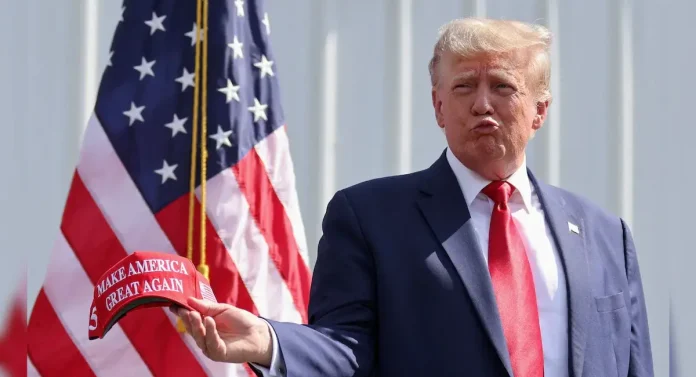In a recent statement, former President Donald Trump declared his commitment to safeguarding Americans from what he perceives as potential government overreach. Trump pledged to prevent the creation of a Central Bank Digital Currency (CBDC) if he were to return to the presidency.
“Tonight, I am also making another promise to protect Americans from government tyranny. As your president, I will never allow the creation of a Central Bank Digital Currency,” Trump stated in his address, addressing concerns about the potential implications of a government-backed digital currency.
The concept of a CBDC has been a subject of discussion and exploration by various governments worldwide, including the United States. The idea involves a digital form of national currency issued and regulated by the central bank. Advocates argue that CBDCs could enhance financial inclusivity and efficiency, but critics, including Trump, express concerns about privacy, government control, and potential abuse of power.
Trump’s statement reflects his stance on limiting government intervention in monetary matters, aligning with a broader political sentiment that emphasizes individual freedoms and limited government control. The former president’s opposition to a CBDC underscores the ongoing debate surrounding the role of digital currencies in the future of finance and governance.
As the landscape of financial technology evolves, Trump’s position adds a notable voice to the dialogue surrounding the potential implementation of a Central Bank Digital Currency in the United States. The extent to which this declaration will influence policy discussions and public opinion remains to be seen, as the debate over the future of digital currencies continues to unfold.



